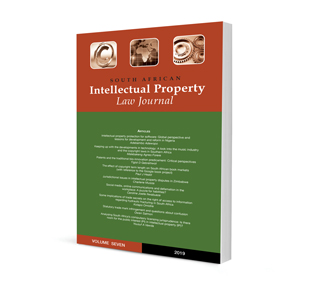Some views from the South African Constitutional Court on patent revocation and infringement matters: Ascendis Animal Health (Pty) Ltd v Merck Sharp Dohme Corporation and Others 2020 (1) SA 327 (CC)

Some views from the South African Constitutional Court on patent revocation and infringement matters: Ascendis Animal Health (Pty) Ltd v Merck Sharp Dohme Corporation and Others 2020 (1) SA 327 (CC)
Author Mikhalien Du Bois
ISSN: 2521-2591
Affiliations: Associate Professor in Intellectual Property Law, University of South Africa
Source: South African Intellectual Property Law Journal, 2021, p. 1 – 17
https://doi.org/10.47348/SAIPL/v9/a1
Abstract
In South African law, the substantive requirements for a patent may be scrutinised during infringement proceedings or revocation proceedings. Lack of novelty (or anticipation) is a ground for revocation of a patent but can also serve as a defense in an infringement matter. After a series of decisions by the Commissioner of Patents and the Supreme Court of Appeal on infringement and revocation matters relating to Merck’s Patent 98/10975 and its alleged infringement by Cipla (now Ascendis), the Constitutional Court was asked to deliberate the matter in Ascendis Animal Health (Pty) Limited v Merck Sharp Dohme Corporation and Others 2020 (1) SA 327 (CC). The main issue related to the principle of res judicata, and whether invalidity of a patent may be considered as a defense during infringement matters after the validity of the patent was already determined during revocation proceedings between the same parties. The decisions also considered whether each revocation ground constituted a separate issue or whether revocation is the issue for purposes of determining whether a matter is res judicata. A review of all the preceding decisions also indicate that the Supreme Court of Appeal may have developed the way in which lack of novelty is determined in South African law, but without explicitly acknowledging that the approach is different. The Constitutional Court’s evenly split decisions (per Khampepe J and Cameron J) indicate different approaches to reaching just and fair outcomes in patent matters. While Khampepe J’s decision focuses more on the need to remove invalid patents from the register, Cameron J’s decision focuses on preventing harm from piecemeal litigation.